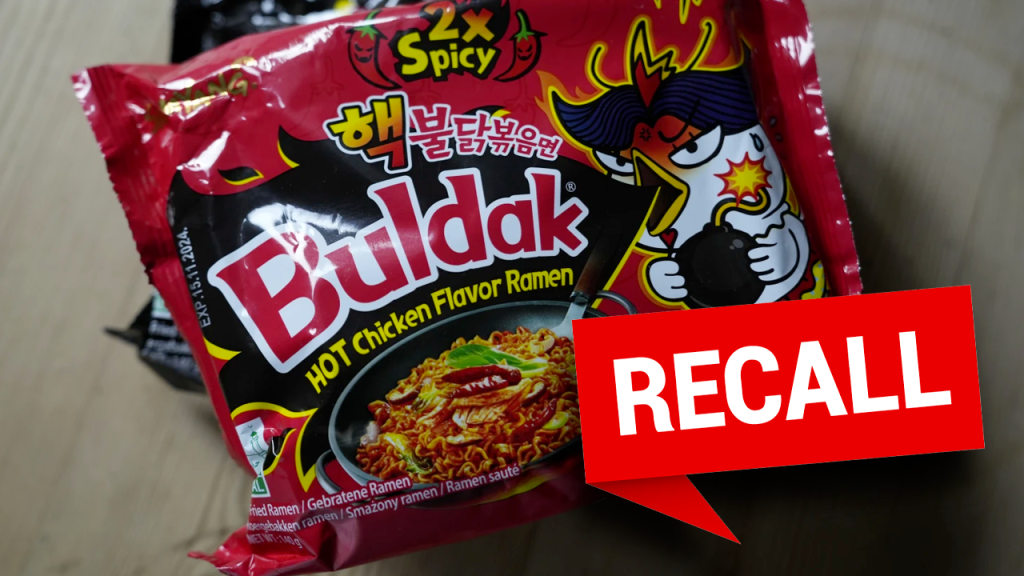The Danish Veterinary and Food Administration has issued a recall of three types of South Korean spicy instant noodle products due to high levels of capsaicin, a chili pepper extract, which could pose a health hazard. The noodles are produced by Samyang Foods, a major South Korean company known for its spicy products that are sold worldwide. The recalled products include Buldak Samyang 3 X Spicy & Hot Chicken noodles, Buldak Samyang 2 x Spicy & Hot Chicken, and Buldak Samyang Hot Chicken Stew. The Danish authorities have deemed the capsaicin content to be overly high, resembling a neurotoxin that could lead to acute poisoning.
Social media has played a significant role in the popularity of South Korean spicy products in Denmark, with children and teenagers daring each other to consume the “extremely strong” noodle dishes. However, the Danish Veterinary and Food Administration has warned that these products should no longer be sold as they pose a significant health risk, particularly to children, frail adults, and the elderly. Consuming the high capsaicin levels in these noodles could result in burning sensations, discomfort, nausea, vomiting, and high blood pressure. As a precaution, the agency has requested that all stores remove these products from their shelves to prevent further instances of acute poisoning.
Samyang Foods, the manufacturer of the recalled spicy noodle products, stated that they understood the recall was due to the spiciness of the products rather than a quality issue. The company has not provided further comments on the matter. While spicy food challenges have become increasingly popular in recent years, with participants engaging in various contests and social media challenges, there have been instances where such activities have resulted in serious health consequences. In a tragic incident, a Massachusetts teen passed away after consuming a large quantity of chili pepper extract during a spicy tortilla chip challenge known as the “One Chip Challenge.”
The Danish Veterinary and Food Administration’s decision to recall the South Korean spicy instant noodle products highlights the potential dangers associated with consuming foods with high capsaicin levels. The agency’s warning specifically targets children, frail individuals, and the elderly who may be more susceptible to the adverse effects of capsaicin, including burning sensations, nausea, vomiting, and high blood pressure. The recall serves as a reminder of the importance of food safety regulations and the need for consumers to be cautious when consuming products from different regions known for their spicy cuisine.
Spicy food challenges have gained popularity on social media platforms, with individuals daring each other to consume exceedingly hot and spicy dishes for entertainment purposes. However, the case of the Massachusetts teen who tragically passed away after participating in a spicy chip challenge serves as a sobering reminder of the potential risks associated with such activities. It is crucial for consumers to be aware of the ingredients and potential health hazards of the foods they consume, especially when engaging in extreme eating challenges that involve high levels of capsaicin or other spicy substances.
As the recall of the South Korean spicy instant noodle products continues to unfold, it is essential for consumers to heed food safety warnings and exercise caution when consuming spicy foods with elevated capsaicin levels. The Danish Veterinary and Food Administration’s proactive approach in removing these products from store shelves underscores the importance of prioritizing consumer health and safety. While spicy food challenges may remain popular in various cultural contexts, it is crucial for individuals to be mindful of the potential health risks associated with consuming excessively spicy foods, especially when significant amounts of capsaicin are involved.


